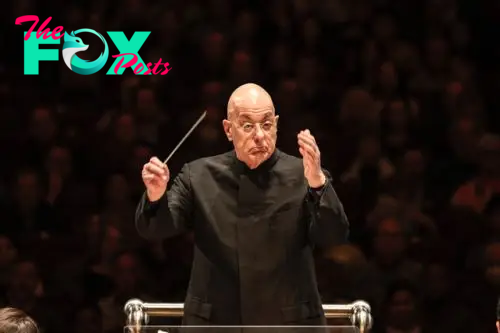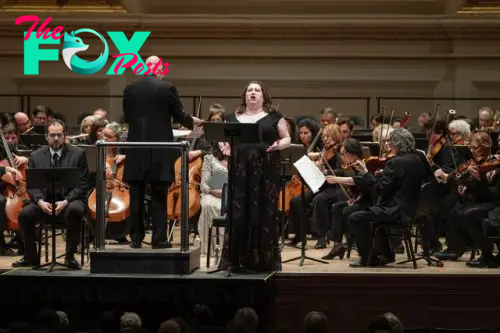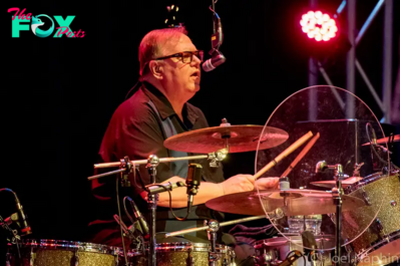Entertainment
Leon Botstein leads the American Symphony Orchestra in a daring, lovely Gurre-Lieder – Seen and Heard Worldwide
 United States Schoenberg, Gurre-Lieder: Soloists, Bard ComPetition Chorale, American Symphony Orchestra / Leon Botstein (conductor). Carnegie Corridor, New York, 22.3.2024. (RP)
United States Schoenberg, Gurre-Lieder: Soloists, Bard ComPetition Chorale, American Symphony Orchestra / Leon Botstein (conductor). Carnegie Corridor, New York, 22.3.2024. (RP)

Forged:
Waldemar – Dominic Armstrong
Tove – Felicia Moore
Wooden Dove – Krysty Swann
Farmer – Alan Held
Klaus the Jester – Brenton Ryan
Narrator – Carsten Wittmoser
It takes audacity to conceive and compose a piece as monumental as Gurre-Lieder, and Arnold Schoenberg was such an individual. Within the remarkably well-attended, extremely informative and entertaining pre-concert introduction, Leon Botstein really used the phrase megalomaniac. He might properly have been describing himself to a sure diploma as that high quality is what it takes to conduct such a piece.
Botstein assured these gathered that this isn’t the Schoenberg who has frightened generations of concertgoers on the mere point out of his title. Slightly, Gurre-Lieder is a younger, evolving composer’s self-constructed monument to his place within the pantheon of German masters stretching from Bach to Wagner. Schoenberg might have drastically modified course stylistically, however he at all times seen himself as carrying that torch ahead.
The music that Schoenberg composed for the large oratorio is within the vein of Mahler and late Richard Strauss. Wagner’s spirit pervades Gurre-Lieder too, particularly in Schoenberg’s use of musical themes to depict characters and plot parts. No surprise that Mahler and Strauss, in addition to Alexander von Zemlinsky, Schoenberg’s instructor, inspired the younger composer. He was a chip off the previous block.
It’s the gargantuan scale of forces that Schoenberg employed which makes Gurre-Lieder such a frightening enterprise. He requires 5 soloists, a narrator, three male choruses of 4 components every, an eight-part blended refrain and an orchestra of about 150. For this efficiency, Botstein employed the requisite 4 harps, 4 piccolo, seven clarinets, twelve E-flat clarinets, eleven horns, 4 Wagner tubas, and an out-sized percussion part that included ratchets and enormous iron chains.
The medieval Danish legend that impressed Schoenberg is predicated loosely on historic information as retold by Jens Peter Jacobsen, a nineteenth-century Danish poet. Schoenberg organized the story in three sections, the primary of which tells of King Waldemar’s love for Tove, the attractive maiden who’s poisoned by his jealous spouse.
Within the second half, Waldemar rails in opposition to God for allowing such an act. It goes on to narrate the destiny of Waldemar and his males who’re doomed to journey every evening on a terrifying hunt for such blasphemy. The work concludes with the approaching of spring and the daybreak of a brand new day, as Waldemar and Tove are united and the refrain sings of the glories of the rising solar.
A heldentenor is required to do full justice to Schoenberg’s music for Waldemar, and Dominic Armstrong is just not one. He sang with type, class and specific consideration to textual content, however his voice couldn’t journey the torrents of sound that Botstein unleashed from the orchestra. In calmer numbers, such because the music the place Waldemar senses Tove’s presence in the great thing about nature, Armstrong’s voice could possibly be heard and the feelings which it conveyed felt.

Felicia Moore’s soprano is minimize from the vocal material that will get a Wagnerian’s pulse racing. Her resplendent voice soared effortlessly over the large orchestra at any quantity. In Tove’s last music the place she rhapsodizes on dying, Moore’s voice was radiant as she sang of a last ecstatic kiss. Her superb sound, along with glowing taking part in from the orchestra and full with cascades of swirls from the harps, made it essentially the most magical second of the efficiency.
The orchestral textures skinny for the ‘Wooden Dove’s Tune’, which permitted mezzo-soprano Krysty Swann’s dusky voice to be heard effortlessly. She instilled the story of Tove’s dying and Waldemar’s grief with a dramatic aptitude that amplified the thriller and sorrow surrounding the lovers’ destiny.
To the accompaniment of some fantastic, spine-chilling music, veteran bass-baritone Alan Held conjured the thrills and horrors of Waldemar and his vassals using by way of the evening sky. As Klaus the Idiot, Brenton Ryan made his entrance by way of the viewers, lithely sliding onto the stage. He gave a successful and biting efficiency of the one little bit of humor within the work, wherein Klaus bemoans his destiny of being compelled to journey with the king at evening, slightly than being left to get pleasure from what few pleasures have been afforded him in life
The work ends with an extended narrative passage that Schoenberg known as a ‘Melodrama’ wherein he employed the vocal strategy of ‘Sprechstimme’. Bass-baritone Carsten Wittmoser exhibited a calculated sense of sophistication as he etched every phrase with precision and readability. It’s undoubtedly essentially the most bewildering musical passage within the work, nevertheless it was as fascinating because it was odd.
The orchestra reveled in Schoenberg’s colourful and dramatic rating. Botstein was delicate to dynamics, if not at all times steadiness. There was typically a muddiness to the orchestral sound when transparency and lightness have been wanted. Schoenberg known as for 200 singers, so it got here as no shock that the hundred or so within the Bard ComPetition Chorale struggled to be heard over the large orchestra.
The ASO has a reference to Gurre-Lieder that extends again in time to its 1932 US premiere by The Philadelphia Orchestra beneath Leopold Stokowski. The British-born American would go on to discovered the ASO in 1962. Then as now, its mission was to demystify orchestral music, particularly in less-often heard works on the fringes of the favored repertoire like Gurre-Lieder, and to make it accessible and inexpensive.
Botstein and the ASO have stayed true to that creed. The resounding ovation from the near-capacity viewers after the fantastic music that concludes Gurre-Lieder demonstrated how a lot their efforts and dedication are valued.
Rick Perdian
-

 Entertainment3h ago
Entertainment3h agoMeet Ava, the Golden Tiger Cub in Thailand Set to Be the Next Cute Viral Sensation
-

 Entertainment3h ago
Entertainment3h agoBest Tom Hardy Movies that Are Must-Watch
-

 Entertainment14h ago
Entertainment14h agoBeyonce to Headline Halftime Show During NFL Christmas Game
-

 Entertainment16h ago
Entertainment16h agoDid You Correctly Answer This Poughkeepsie Related Jeopardy Question?
-

 Entertainment20h ago
Entertainment20h agoWhat to Know About Denzel Washington’s Gladiator II Character
-

 Entertainment21h ago
Entertainment21h agoChanges Made in New York to “Men Working” Construction Signs
-

 Entertainment1d ago
Entertainment1d agoAmerica On CoffeeWe’re simply inviting you to take a timeout into the rhythmic ambiance of our breakfast, brunch and/or espresso picks. We’re completely happy everytime you cease by.BAD DREAMS – TEDDY SWIMS
-

 Entertainment1d ago
Entertainment1d agoRemembering Song Jae-rim: A Look at His Best Movies and K-Drama Performances


























